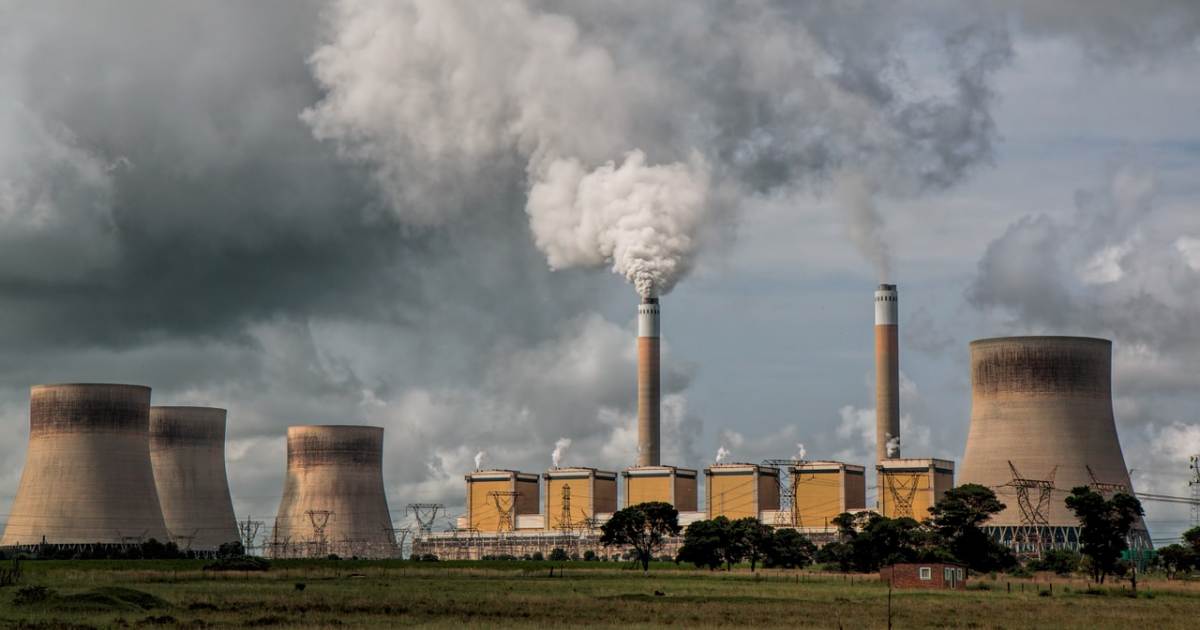A study out of Harvard University estimates the number of deaths attributable to fine particle pollution generated by fossil fuel combustion is likely far higher than previously thought.
This form of pollution not only irritates airways and impacts lung function, it consists of particles small enough to enter the bloodstream via the lungs, which then go on to inflame and damage other organs.
According to the research, which was carried out by Harvard researchers in collaboration with the UK’s University of Birmingham, the University of Leicester and University College London, an estimated 8 million+ people died in 2018 from this fossil fuel air pollution – around 18 percent of total global deaths in 2018.
It’s significantly higher than the recent Global Burden of Disease Study estimate states an article announcing the findings, with that putting the total number of global deaths from all outdoor airborne particulate matter at 4.2 million1. This previous estimate also included pollution from non-fossil fuel sources including dust and smoke from fires.
“We hope that by quantifying the health consequences of fossil fuel combustion, we can send a clear message to policymakers and stakeholders of the benefits of a transition to alternative energy sources,” said Joel Schwartz, Professor of Environmental Epidemiology, Harvard T.H. Chan School of Public Health.
Between greenhouse emissions and other pollutants co-emitted with these gases, it paints an incredibly grim picture of some of the impact of our pursuit and use of fossil fuels.
In addition to deaths attributed to fine particle pollution created by burning fossil fuels, climatic changes are estimated to already cause more than 150,000 deaths annually. Between 2030 and 2050, climate change is expected to be responsible for approximately 250,000 additional deaths per year – just from conditions including malnutrition, malaria and heat stress.
Fossil Fuel Air Pollution Deaths In Australia
According to the study, the highest rates of mortality are in Eastern North America, Europe, and South-East Asia. While the related Harvard article and the study abstract (full study is behind a paywall) doesn’t mention Australia specifically, a brief release from the Climate Media Centre issued yesterday morning states:
“In Australia, it represents about 4 per cent of all deaths each year, or about 5,700 fatalities.”
While this is significantly “better” than some countries, it’s still 5,700 lives more than it needs to be.
In 2017, a study of the health impacts of coal power in New South Wales alone found burning the black rock was responsible for hundreds of premature deaths in the state every year. This doesn’t include impacts from other fossil fuel combustion such as gas-fired electricity generation and transport.
Aside from the human tragedy and burden on the health care system, there’s also the significant economic impact associated with premature death.
And while on the topic of economic impact, SQ’s Ronald wrote about a Moody’s rating agency report back in 2019 estimating the economic costs of climate change by the end of this century to be almost $100 trillion if global warming reaches 2 degrees. That’s mind boggling in itself, but that doesn’t take into account the costs attributable to premature deaths caused by fine particle and other pollution generated by fossil fuel combustion (whatever they might be).
As the scale of the havoc burning fossil fuels causes become increasingly clearer, do we really need much more motivation to move beyond them to a renewable energy-based future (much) sooner rather than later – and for the Federal Government to pull out all stops to help achieve it?
Footnotes
- The State Of Global Air / 2020 put the number of deaths globally from air pollution (all forms) in 2019 at 6.67 million ↩


 RSS - Posts
RSS - Posts



Mark Carney, who was the Bank of England governor up until last year, told the BBC recently:
“When you look at climate change from a human mortality perspective, it will be the equivalent of a coronavirus crisis every year from the middle of this century, and every year, not just a one-off event. So it is an issue that needs to be addressed now.”
https://www.bbc.com/news/business-55944570
Also last week a forum outlined some of what’s at stake – see my comments at: https://www.solarquotes.com.au/blog/emissions-australia-morrison/#comment-966579
Yet it seems at least one senior member of the Australian Government isn’t worried. Deputy Prime Minister and Nationals leader, Michael McCormack MP, has reportedly recently said:
“We are not worried, or I’m certainly not worried, about what might happen in 30 years’ time.”
https://www.theguardian.com/australia-news/2021/feb/07/michael-mccormack-says-agriculture-could-be-excluded-from-2050-net-zero-emissions-target
To me, McCormack’s statement is profoundly and disturbingly ignorant and uncaring, not just for fellow people and future generations in general, and as well as for the ongoing prospects of the community that McCormack represents, but also it seems for his own family members. McCormack apparently has three children. Even if it was intended as a flippant remark, it suggests to me a lack of sound judgement and raises serious questions in my mind about fitness to lead for the longer-term beneficial future for my fellow Australians and me.
I’ve written to my local Federal Parliament Member, a Nationals member, who apparently also has children, to ask whether he shares and/or supports McCormack’s expressed views.
Perhaps the motivation for the Federal Government to pull out all stops to to a renewable energy-based future (much) sooner rather than later requires many more Australians to expressly tell members of the Government to do so, before it’s too late. Clock’s ticking!